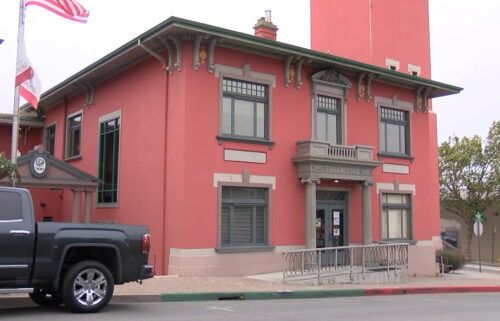With Feds sending no water to local farms, growers in San Benito County are forced to cut back production
SAN BENITO COUNTY, Calif. (KION) After years of drought — and an exceptionally dry start to the year — farmers in San Benito County will be receiving no water this year from some of California's biggest reservoirs.
San Benito County receives its water from three places: the federally-managed Central Valley Project, local groundwater basins and a small amount of reclaimed, or recycled water. But this will be the second year in a row that the county isn't getting its federal allocation.
"We've just had to adjust and rely more on those other sources. And for us, it's ground water," said Richard Bianchi, Board Member of the San Benito County Farm Bureau, and Regional Manager of Sabor Farms in Hollister. "The problem with our groundwater in San Benito County is the quality isn't as good as our federal water is."
But Jeff Cattaneo, General Manager of the San Benito County Water District (SBCWD), says groundwater isn't a solution for everyone.
"There are some areas that don't have sufficient groundwater or the groundwater quality isn't good enough and they can't use it," Cattaneo said.
Farmers in the county, and all across the state, are having to factor that lack of water into their crop patterns.
"There's probably going to be about 25% of the land that normally gets irrigated that's going to end up being fallow," said Cattaneo.
"Let's be honest, we're only in March. So yes, it could be. It could be that much. It could be considerably more," added Bianchi.
Last year, Cattaneo said he made the decision to release about 8,000 acre-feet of water that the county had stored in local reservoirs for the growers.
"If I store it in a reservoir, I lose a significant amount of it to evaporation and seepage. So I had a choice to deliver it last year, and everybody gets to use as much as they possibly can. Then crossed our fingers and hoped that something better would come. But it didn't." said Cattaneo. "It may take two or three years before they're filled back up to where they are in a really healthy position."
And the option to buy water from other areas of the state doesn't work during a statewide drought.
"There are water agencies usually north of Sacramento, north of the Delta, that will make water available. Last year I spent about $2.5 million buying extra water, which it's not cheap. But [this year] I'm probably not going to be able to get any water from them. And that's like the first time that that's ever happened, that they've been cut back so much that they may not have any water to sell," added Cattaneo.
But water issues aren't the only problem plaguing California farmers — the high fuel prices are being felt as well, and it's all expected to hit the consumer's pocket.
Bianchi said he and other farmers have even had fuel stolen from their tanks.
"The fuel prices have just gone up, I mean, it's what almost doubled from a year ago? Less water means less crops that we can produce. And it's costing us considerably more to raise these crops because of the fuel, and it costs more to truck them to the stores. Everywhere up the food chain, it's increased costs. So if it doesn't pass to the consumer, I'd be surprised," said Bianchi.
And it may not just be farmers affected. SBCWD also delivers water to the City of Hollister, the Sunnyslope County Water District and soon, San Juan Bautista.
"I am going to get, at this point, at least some water for my urban customers. But the federal government is even looking at pulling that back and making that zero, which has never, ever happened before," said Cattaneo.
Cattaneo said the water district is also planning to move toward a mandatory 20% conservation for those customers.
But with not much rain forecast for the rest of this year in California... is there a solution?
"The only way that we're going to be able to get back to having a healthy groundwater basin and healthy water supplies for everybody is to build more storage to capture the water in those wet years. You can't conserve your way out of this problem," said Cattaneo.


